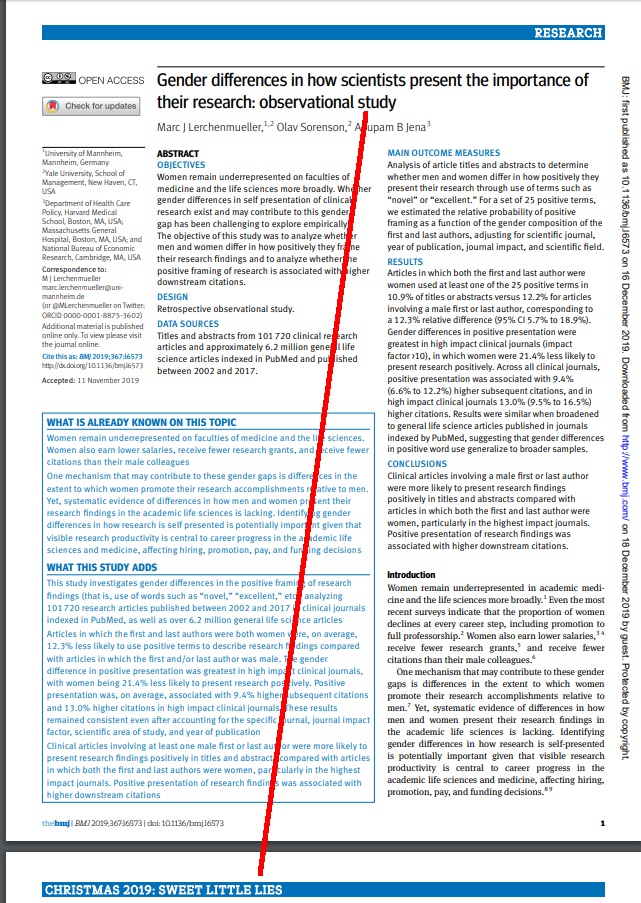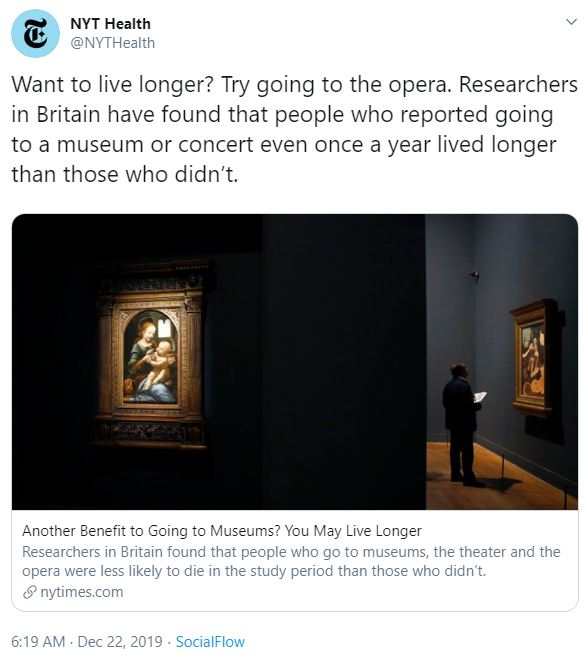Case in point is this article correlating opera attendance to better health outcomes. It was so bas I scoured the BMJ paper to see if it was part of their annual Christmas spoof pices and they got duped, the way we assumed Atlantic was duped when writing about how sexist scientists are, because "men are more likely than women to deem their own work new and profound."
Both the social sciences and other statistics-based fields like epidemiology have gotten so specious it can he hard to tell the difference between a real paper and a parody.

Sure enough, right there at the top:

Isn't that even more reason for a journalist to be skeptical of papers?
Why would a journalist at a publication that touts itself as America's most trusted outlet not use any critical thinking? Go to the opera? Epidemiologists can also correlate imported caviar and a Mercedes AMG to better health. Or visits to museums. They can even correlate a New York Times subscription to better health. Because WEALTHY PEOPLE ARE HEALTHIER at a population level.

As a serious point, the word "researcher" is thrown around way too liberally by corporate media. People read "researcher" and think someone is actually doing science. But these kinds of papers are doing nothing of the kind; from the International Agency for Research on Cancer to Harvard School of Public Health to the US National Institute of Environmental Health Sciences, the "research" is instead just taking rows of inputs - food, medicine, or opera - and looking for matches of diseases and healthier outcomes, more cancer or less heart disease - and when they find enough of them to abuse into statistical significance they write a paper. Using such junk methodology is why IARC gives the same carcinogen classification to bacon as it does to plutonium, and why other statistics fetishists can pick rich people behavior and correlate it to improved health. By ignoring the obvious confounder, all while claiming they controlled for socioeconomics. No one doing these papers knows enough statistics to control for anything. Experts in statistics will be the first to note that:
I'm a statistician. My motto is 'I haven't read your paper yet but I'm virtually certain your methods are flawed&your results are wrong.'
— Stephen John Senn (@stephensenn) April 9, 2014All I want for Christmas is more critical thinking among the public; starting with journalists.



Comments